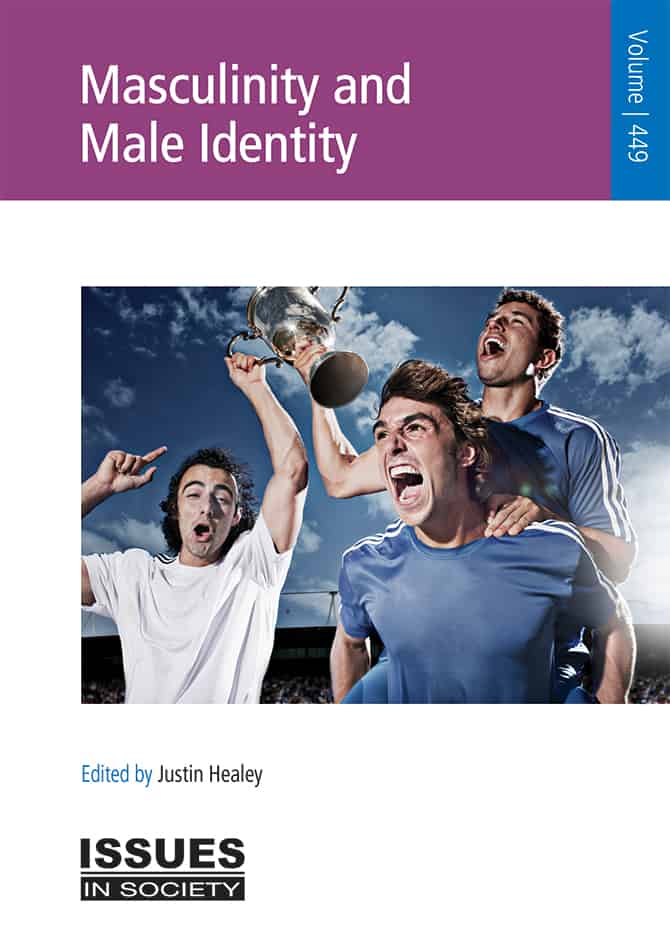In the vast expanse of human experience, the notions of faith, masculinity, and identity intertwine to create a tapestry rich in complexity. Within the teachings of the Bahá’í Faith lies a profound exploration of these interrelated themes, which elucidate the evolving paradigm of modern masculinity. This discourse aims to approach the topic through an academic lens, exposing the intricacies of Bahá’í perspectives on manhood and identity, while metaphorically navigating through the labyrinthine corridors of spiritual understanding and social norms.
At the heart of Bahá’í teachings is the principle of oneness—the intrinsic unity of all humanity. This tenet serves as a foundation upon which masculinity can be redefined and contemplated. Within the conventional societal framework, masculinity has often been synonymous with dominance, stoicism, and emotional reticence. Yet, when viewed through the prism of Bahá’í spirituality, such traditional portrayals emerge as mere archaic manifestations incapable of embodying the essence of genuine manhood.
The Bahá’í Faith articulates that masculinity should not be cloistered within the confines of outdated conventions. Rather, it is depicted as a vibrant river, flowing freely and expansively towards the sea of unity and compassion. This notion invites men to embrace vulnerability and nurture their emotional landscapes, fostering an identity that is multifaceted, deeply interconnected, and reflective of their aspirations towards spiritual growth.
As one wanders through the thicket of masculine identity, the Bahá’í teachings offer a guiding light. It encourages the examination of personal attributes such as courage, reliability, and integrity, which are often extolled as virtues of manhood. However, the Bahá’í perspective transcends superficial accolades by emphasizing the importance of servant leadership. The role of a man is not only that of a provider but also that of a protector of human dignity and a promoter of justice. In this light, masculinity morphs into a larger commitment—an obligation to serve humanity with love and compassion.
The metaphor of a gardener aptly illustrates the desired approach to masculinity within the Bahá’í context. Just as a gardener cultivates a diverse array of plants, fostering growth through care and attention, so too must men endeavor to nurture the emotional and spiritual growth of themselves and those around them. The garden of identity flourishes when men engage in self-reflection, seeking to understand the impact of their actions and thoughts. In doing so, they cleanse their garden of toxic weeds—societal expectations that stifle true expression and authenticity.
Moreover, the teachings emphasize the critical intersection of faith and masculinity. Faith becomes the compass guiding one’s identity, directing individuals towards a purpose rooted in the divine. As one reflects upon the essence of masculinity, it becomes imperative to explore how spiritual faith shapes one’s approach to life’s vicissitudes. The Bahá’í worldview insists that manhood must be fortified with spiritual virtues such as compassion, humility, and justice. It is this melding of faith and identity that cultivates a more resilient, resilient masculinity capable of withstanding societal upheavals.
The quest for personal identity does not exist in a vacuum. Bahá’í teachings advocate for an inclusive understanding of masculinity, one that embraces all expressions of gender. With gender equality being a central tenet of the Bahá’í Faith, the male identity is prompted to evolve, allowing space for emotional nuance and the dismantling of binaries. This evolution invites dialogue and understanding between the masculine and feminine, thereby enriching the tapestry of human experience with the threads of empathy and cooperation.
Furthermore, this dynamic understanding of masculinity reflects the transformative power of community. The Bahá’í community model presents a platform conducive to collective growth—where men can convene, share experiences, and foster one another’s journeys towards authentic identity. In the embrace of such a community, the pressures of loneliness and competition are alleviated; instead, a spirit of camaraderie and mutual empowerment prevails. The reciprocal nature of this support echoes a harmonious balance reminiscent of a symbiotic ecosystem, where each participant contributes to the sustenance and vitality of the whole.
In navigating towards a more enlightened masculinity, individuals are encouraged to engage in ongoing education. The quest for knowledge allows for the dismantling of prejudice and ignorance—a task imperative for the forging of a robust identity. Bahá’í teachings highlight the cultivation of moral discernment as a vital weapon against the disparities wrought by societal misconceptions. Knowledge, therefore, becomes not merely an accumulation of facts, but a fundamental element in a man’s journey toward integrity and authenticity.
As the discussion culminates, one must reflect upon the profound interplay of faith, masculinity, and identity as portrayed in the Bahá’í texts. These teachings extend an invitation to redefine the parameters surrounding manhood, encouraging a departure from rigid roles towards a more fluid understanding. The blending of spirituality with masculine identity catalyzes personal evolution. Within this nurturing environment, individuals can draw strength from vulnerability, compassion, and shared human experiences.
Ultimately, a re-envisioned masculinity, underpinned by the principles of the Bahá’í Faith, serves not only individual identities but creates ripples of transformation within communities. The cultivation of such an identity yields profound rewards—not only for men themselves but for humanity at large, as it nurtures a more compassionate, unified world.
